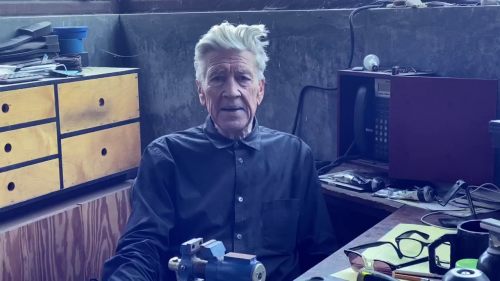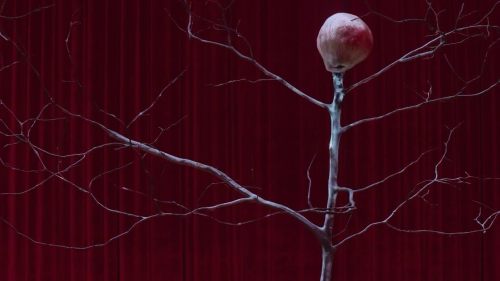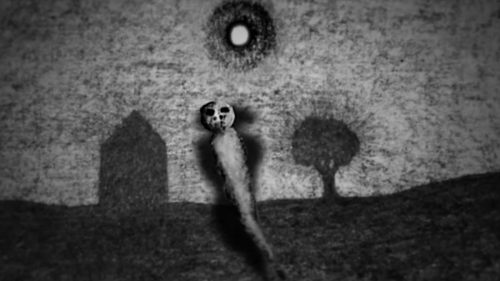Gordon Cole, The Mary Sue Of TWIN PEAKS
“Mary Sue” is a contentious descriptor used to wage internet wars. Its definition is murky, and typically reserved for female characters who are preternaturally gifted and blank-canvas audience surrogates. Bella Swan of Twilight is the most famous example, a quirkily clumsy teenager with an absent personality who somehow winds up the object of affection for ageless vampire Edward Cullen. But, of late, “Mary Sue” has become shorthand for any female character – usually in a popular franchise – who is beloved by those around her, effortlessly gifted, “exotic” in that she comes from nowhere special but is able to shift the story with her importance. Rey of Star Wars, Katniss of The Hunger Games, and Furiosa of Mad Max have all been slapped with the label.
Of course, one might argue that “Mary Sue” isn’t, by default, a criticism. It started that way, when writer Paula Smith invented the term in a Star Trek parody story – published in the fanzine Menagerie – about authorial insert characters: female, adolescent, romantically pursued by handsome men, popular among pre-established characters for no discernible reason. Menagerie’s editors disliked the trope they were seeing in fan-submitted stories, going so far as to write of the Mary Sue, “she saves the day by her wit and ability, and, if we are lucky, has the good grace to die at the end, being grieved by the entire ship.”
Though intended as an insult, it’s hard, with perspective, to find much to resent about female creatives seeking community in self-created fiction. Women are rarely afforded their own stories of empowerment, and nerdy women especially are ostracized in the fandoms that comfort them. The mere existence of the female-driven cartoon series Forces of Destiny – based on the heroines of the Star Wars franchise – has brought out the most vile of condemnations from male fans. (Forces of Destiny is a handful of 3-minute YouTube shorts; Star Wars’ two full-season cartoon series, The Clone Wars and Rebels, have male protagonists.) It makes sense, then, that the Mary Sue moniker has been recently twisted to apply to any female character, author-insert or not, who is skilled and well-liked, a terminology raincloud that follows and drowns out whatever small strength we might conjure.
Which is why it’s very interesting that David Lynch’s Gordon Cole – perhaps the most prominent recent example of a Mary Sue, if we’re going off the textbook “author insert” definition – isn’t forced under the same microscope. Twin Peaks: The Return is certainly less of a cultural behemoth than something like Star Wars, but there’s enough ink spilled about the show to wonder why Cole, as played by his own creator, isn’t clocked for the qualities a woman would never escape.
Gordon Cole doesn’t have the hallmarks one typically associates with a Mary Sue. He is old, male, hearing-impaired, somewhat buffoonish, at least in his delivery. But he’s arguably the most important character of The Return – at least until the multiple Coopers converge, which Cole is likely to orchestrate. He’s the deputy director of the FBI; the head of the Blue Rose task force, a top-secret operative of which he’s one of only two original members still intact (the late Miguel Ferrer’s Albert Rosenfield being the second); he helped his less-woke colleagues finally accept their transgender coworker Denise Bryson (and even got to deliver The Return’s most iconic line yet: “Fix your hearts or die.”); he has, of late, started receiving visions of Laura Palmer, suggesting he’s cosmically destined for an important role in saving Coop, and perhaps the world. He’s also, apart from the various incarnations of Cooper, the most visible character of this new series, appearing in almost every episode with Albert and his beautiful new associate, Tammy Preston. He’s attuned to Diane’s questionable motives, gets all of the funniest lines, and, as we saw with last week’s extended French woman scene, able to woo women decades younger than him. (He also got to flirt with and kiss Mädchen Amick’s Shelly in the show’s original run, in a side story that serves next to no purpose but is, admittedly, pretty cute.)
None of these are digs at Lynch, necessarily, but it does stand in contrast to the way the series’ iconic female characters have been depicted in The Return. Shelly is separated from her now-heroic husband Bobby Briggs and in love with the drug-dealing Red; Audrey is married to some bizarre man named Charlie and most likely the mother of evil-incarnate Richard (who is believed by many to be the product of rape from Evil Cooper while she was in a coma); Norma and Nadine have barely spoken; Laura is still the mystical dead girl; Donna, Josie, and Catherine aren’t on the show anymore. Lucy has probably fared best, although she hasn’t had much in the way of development.
While the women suffer at the hands of men, Lynch’s Cole is sipping his private storage of wine and playing hero, his quirks less of a hindrance than they are traits that make him more lovable. It’s obvious some of his views as a creator are antiquated, and I don’t even know that I fault the show for that – the subversion of good men is steeped in Lynch’s filmography, and especially in Peaks, where Leland Palmer and even Dale Cooper are now villains. Cole may have a terrible, nagging secret, might kill Good Cooper, might go off the rails completely. But that would still centralize him in the story, and even a bad guy arc is obvious authorial wish-fulfillment.
I love Twin Peaks: The Return. I still think is the most engrossing, beautiful, challenging, and important thing on TV right now, and possibly ever. And I do love Gordon Cole as much as I know I’m supposed to. But I can’t help but wonder how a similar insert character might be received if a female auteur were at the helm. If, for instance, Jane Campion was suddenly the lead detective on Top of the Lake, flanked by young, handsome men, sipping cocktails and delivering one-liners. The series are situationally and tonally different, of course, but I imagine the questions of self-indulgence would fill headlines. If women can’t even create fantasies for themselves in innocuous spaces like fan fiction without ridicule, we should ask ourselves why a male character on a prestige television show doesn’t raise the same flags.



